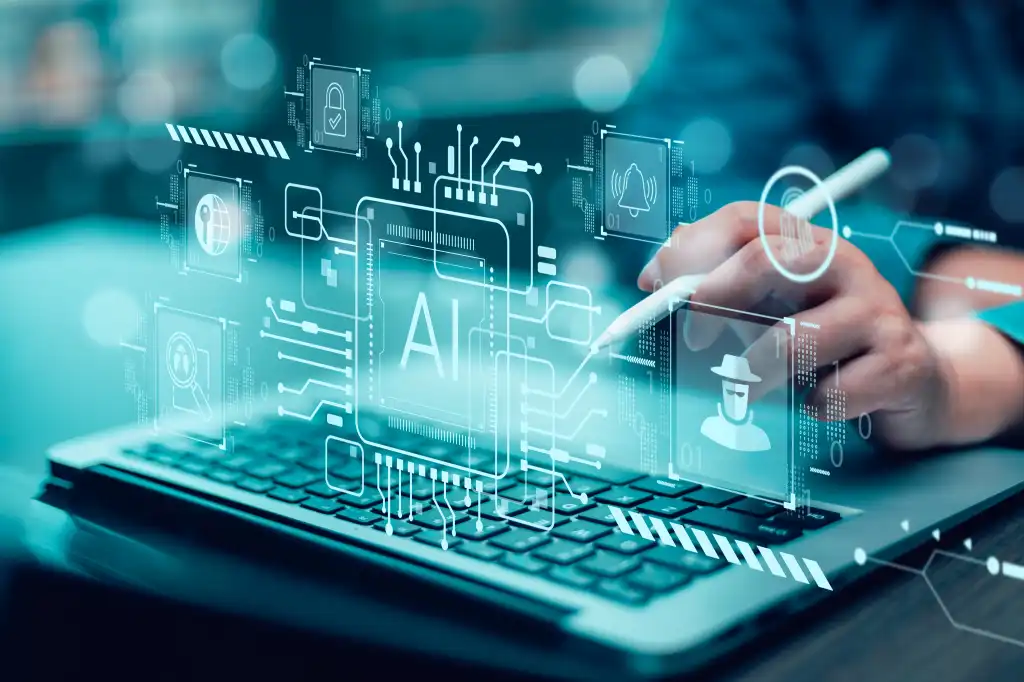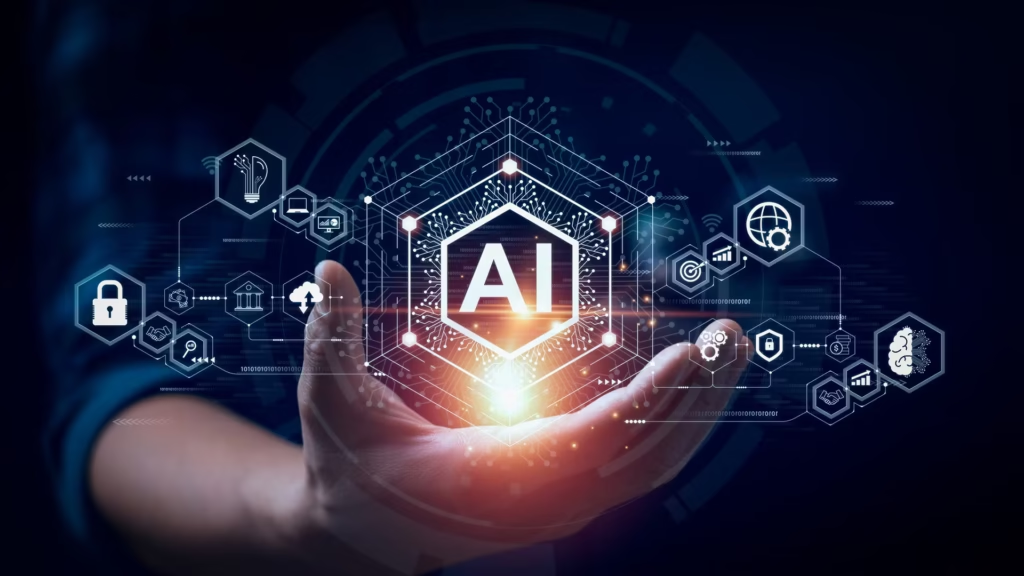contact info
- 3rd Floor, Gujranwala Business Center, Near KFC, G.T. Road, Gujranwala, Pakistan
- +92 303 0813333
- +92 303 0644484
- info@hashlearning.com
- info@hashlearning.com

Artificial Intelligence (AI) is no longer a futuristic dream or a buzzword—it has become an integral part of our lives. Whether it’s the smart assistant in your pocket, the self-checkout system at the store, or the recommendations you get on Netflix, AI is silently but profoundly reshaping the way we live, work, and interact with the world.
In this blog, we’ll explore the essence of AI, its real-world applications, the industries it’s transforming, and the ethical concerns it raises, along with a glimpse of what the future holds.
Artificial Intelligence refers to the development of computer systems that can perform tasks requiring human intelligence. These tasks include learning, reasoning, problem-solving, and decision-making. AI leverages large datasets, algorithms, and computing power to mimic human behavior—or even exceed it in specific domains.
Some key branches of AI include:
AI has deeply embedded itself into our everyday routines, often in ways we may not even realize. Here are some examples:

Artificial Intelligence is not just impacting our personal lives—it’s transforming entire industries:
AI in healthcare is saving lives by identifying diseases earlier and with greater accuracy. Tools like IBM Watson Health can analyze massive datasets of medical research and patient records to recommend the best treatment options. Wearable health devices, powered by AI, monitor patients’ vitals in real-time and alert doctors of any anomalies.
AI is personalizing education like never before. Adaptive learning platforms assess a student’s strengths and weaknesses and adjust content accordingly. Virtual tutors and AI-driven grading systems are helping teachers focus more on instruction.
AI has become the backbone of the financial sector, from fraud detection systems to robo-advisors. Algorithms analyze spending patterns to prevent fraudulent activities, while AI-powered trading systems execute high-speed, data-driven decisions in the stock market.
In agriculture, AI is optimizing crop yields by analyzing weather patterns, soil conditions, and pest threats. Drones powered by computer vision provide real-time data to farmers, helping them make informed decisions.
Online retailers like Amazon and Alibaba use AI to predict consumer behavior, manage inventory, and deliver personalized shopping experiences. AI chatbots are enhancing customer service by offering 24/7 support.
Self-driving cars, developed by companies like Tesla and Waymo, are set to revolutionize transportation by reducing accidents and traffic congestion. AI is also streamlining logistics with route optimization, drone deliveries, and automated warehouses.
As powerful as AI is, it comes with its own set of challenges:

The future of AI is both exciting and unpredictable. Here’s what we can expect in the coming years:
Artificial Intelligence is undeniably one of the most transformative technologies of our time. Its potential to address global challenges like healthcare access, climate change, and education is immense. However, with great power comes great responsibility. To ensure AI is a force for good, stakeholders across governments, businesses, and society must work together to address its ethical implications.
As we navigate this AI-driven future, one thing is certain: AI isn’t here to replace us—it’s here to empower us. By embracing it responsibly, we can unlock possibilities beyond our imagination and shape a world where technology truly works for everyone. Click Here!
You must be logged in to post a comment.